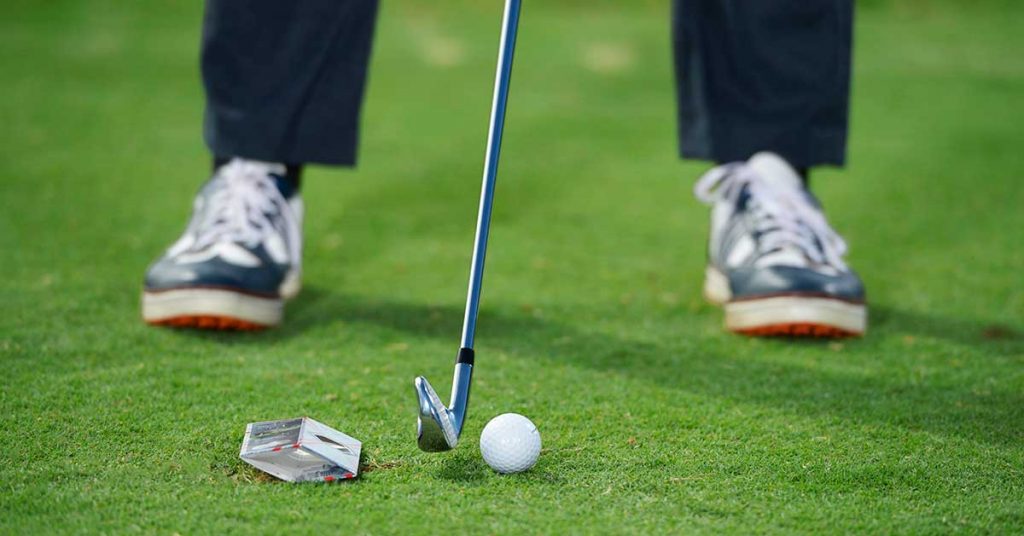A lthough they might serve you well on a golf trip to Ireland or Scotland, where a lot of times you can chase the ball onto the green, those low, and often thin, iron shots are probably costing you strokes at home. There are just too many holes on most courses where you’re asked to carry the ball all the way onto the green and then get it to stop on a firm putting surface. To get the ball to fly higher and land softer, you need to hit your iron shots more in the centre of the face, not a groove or two – or five! – lower.
One reason amateurs tend to hit irons too low is that they narrow their swing radius, taking the club back by letting the lead arm (left arm for right-handers) bend too much. It doesn’t have to be locked, but it should maintain a fairly straight appearance all the way to the top. When it bends significantly, you’ll have to make a super-fast adjustment in the downswing to get the swing radius back to the length it was at address. Maintaining the width from address to impact is the easiest and most consistent way to hit the ball in the middle of the clubface and get it to launch higher.
A great way to keep the left arm from collapsing is by actually focusing on the right arm as you take the club back. Push the lifeline of your right hand into the thumb of the left hand, and keep pushing away from your body as you swing all the way to the top. Essentially, you’re straightening your right arm to prevent the left arm from bending. Doing this will keep the club moving on a wide arc and put it in position to approach the ball on a shallower path, which increases your chance of hitting the ball in the sweet spot and letting the club’s actual loft give you a high-and-soft shot.

Compression Matters, Too
Another reason you hit it low is that your club bottoms out too soon. You’re probably trying to pick the ball off the turf. The bottom of your swing might be an inch or so behind the ball, but a tour pro’s club is still moving downward a few inches past impact. To get the bottom of your swing ahead of the ball like they do, empty a sleeve of balls and collapse the box they came in so it’s relatively flat. Place the box behind each ball you address and then try to hit the ball but not the box. You’ll notice right away that your successful attempts produce a nice feel and sound to your iron shots.
– with Ron Kaspriske
David Leadbetter, a Golf Digest Teaching Professional, runs 32 academies worldwide.

